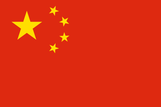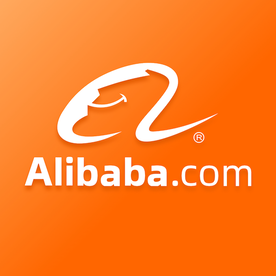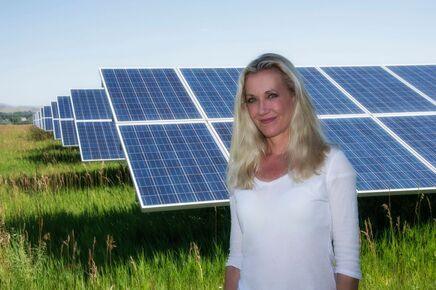|
For most of the 21st Century, the U.S. has been hot on China – hosting IPOs left and right. Baidu (China’s search engine) went public on the NASDAQ Stock Exchange on August 5, 2005. Alibaba listed on the NYSE on Sept. 19, 2014. “As of March 31, 2022, there were 261 Chinese companies listed on the U.S. stock exchanges with a total market capitalization of $1.3 trillion,” according to the U.S.-China Economic and Security Review Commission. Chinese companies saw their shares fall out of favor with American investors beginning in February of 2021. On August 3, 2022, a bombshell was dropped. The U.S. SEC issued a rather stark Investor Bulletin, warning investors that, “You should be aware that the securities of a Commission-identified issuer will be subject to a trading prohibition in the United States if the company is so identified for three consecutive years. This could result in the securities becoming illiquid and potentially losing value significantly.” While the current law requires that foreign companies (mostly Chinese) must comply with the SEC’s audit requirements by 2024, SEC’s Chair Gary Gensler wants a deal in place this year, as Congress is trying to move up the deadline for audit compliance to 2023. Money & Politics Why would the SEC want U.S. investors to pull financial support away from Chinese companies? While Congress and the SEC claim that it is all about proper auditing, could it have anything to do with politics? With Russia’s invasion of Ukraine and China staging war games in Taiwan, is the U.S. employing financial saber-rattling? Are they serious about delisting Alibaba and other popular Chinese equity investments? Or are they forcing financial hardship on these firms (and the American investors who bought into them) as an aggressive wooing and reminder of how the U.S. consumers and investors have helped China’s rise to become the strongest economic power in the developing world? It’s important to remember that the U.S. and Europe are two of China’s biggest customers and investors. At the same time, China and Russia have grown closer over the past few years. China and Russia will be conducting joint military exercises from August 30 to Sept. 5 (just as they did last year). China’s Ministry of Defense issued a statement that the participation “is unrelated to the current international and regional situation.” China appears to have taken a neutral stance in the invasion of Ukraine (so far). 2022 & 2023 are Critical Many analysts are confident that the 3-year time frame allows ample time to resolve these issues. (H.R.6285, the new bill that proposes to push up compliance to 2023, was referred to the House Committee on Financial Services on Dec. 14, 2021.) They are telling their clients that China is serious about resolving these issues and that the talks are continuing. Charlie Munger & the Daily Journal Corporation still had $34 million invested in Alibaba as of the last 13F report on July 6, 2022. In his speech on July 27, 2022, the SEC’s Gary Gensler affirmed that, “The SEC and the PCAOB have been negotiating with Chinese authorities on a Statement of Protocol to govern inspections and investigations of registered public accounting firms on the ground in China and Hong Kong.” However, Gensler also said that the Statement should be completed this year, since Congress wants to accelerate the timeline for compliance from three years down to two years. His message to The Chinese authorities was firm: “I look forward to ensuring key investor protections in our markets — with China-based issuers, if the law is followed; or without China-based issuers, if it is not.” Which Companies are on the HFCAA List? Since March 30, 2022, the SEC has been adding Chinese based companies to their HFCAA list (Holding Foreign Company Accountable Act). (Click to see if your company is there.) There are over 150 companies listed on the SEC’s HFCAA webpage – the majority of the 261 Chinese companies publicly listed in the U.S. If you own a Chinese equity, chances are your company is on the list, including the name brands, like Alibaba, Nio, Xpeng, Li Auto, and a few surprises, like Canadian Solar. Alibaba Alibaba was added to the “provisional” HFCAA list on July 29, 2022. The company responded by issuing a statement to the Hong Kong bourse, writing "Alibaba will continue to monitor market developments, comply with applicable laws and regulations and strive to maintain its listing status on both the NYSE and the Hong Kong Stock Exchange." On August 4, 2022, the company added two new independent directors, with expertise in finance and auditing. Irene Yun-Lien Lee is the chairman of Hysan Development Company Limited and the independent non-executive chairman of Hang Seng Bank Limited. Albert Kong Ping Ng is the former chairman of Ernst & Young China. Are There Any Reasons to Invest in China? China’s economy has slowed, but is still growing. Goldman Sachs is projecting 3% GDP growth for 2022, compared to the Federal Reserve Board projection of 1.7% GDP growth in the U.S. The U.S. economy contracted for the first half of 2022, which is commonly assumed to mean that the country is in a recession. The NBER has not yet made that announcement, however. Chinese companies have seen their revenue growth slow, as well. Weibo’s year-over-year growth was only about 5.6% in the 2nd quarter, while Baidu and Alibaba were flat. Profit margins are also lower. It wasn’t uncommon for Chinese companies to have double digit profit margins that were above 20 or 25% last year. Today Alibaba and Baidu’s profit margins are modest at 3.84% and 6.1%, respectively. However, the 2nd quarter included a two-month lockdown in China. So, brighter days may lie ahead – though dimmer than the halcyon days of yore. Share prices for companies like Alibaba and Weibo are at all-time lows that have not been seen since their IPOs. If there are signs that China is moving to a more friendly stance with the West, or if these Chinese companies start allowing audits, their share prices could recover very rapidly. Alternatively, if China invades Taiwan, you’re likely to see investments in Chinese companies plunge. The stock market reacts quickly to political vicissitudes, and especially to war. U.S. investors in Chinese equities could either have a fantastic Santa Rally or a lump of coal in the stocking… Daqo The exception to the slower trend would definitely be Daqo. Daqo is a polysilicon provider for the solar industry. The year-over-year sales growth is 182%. Profit margins are 51%. The P/E is only 3. It’s truly rare to see a company that is so much in demand with its customers, which is so out of favor with investors. Daqo is also on the HFCAA list. Unlike Alibaba, which made it clear that they will try to keep their NYSE listing, Daqo’s press release was more ambiguous. The company wrote, “The Company has been actively exploring possible solutions to best protect the interest of its stakeholders.” At this point, Daqo has until 2024 to get its books audited (unless the deadline is moved up to 2023). Learn more about Daqo in my July 10, 2022 blog. Bottom Line Investing in Chinese equities got a lot riskier in 2022. We have removed Chinese funds from our Hot Country list, as there is just too much political heat and pressure for most passive investors to handle. However, if Chinese and American relations improve or if these Chinese companies allow auditing access, investors should get very excited about these companies again. The ones that will recover the fastest are the ones that are the most undervalued, and are showing the most promising revenue growth. Daqo is the poster child of that. If you choose to take on higher risk for potentially higher gain, you can’t just buy and hold. Investing in Chinese equities requires that you stay plugged into developments on the SEC’s auditing demands – particularly toward the end of this year. Investors must babysit their Chinese equities, know when their exit strategy is going to be, and pay close attention to whether or not hundreds of Chinese companies are going to be delisted in 2024 – or possibly earlier, in 2023, if H.R. 6285 passes Congress. Taking profits early and often is never a bad plan in volatile markets. Regular rebalancing (1-3 times a year) is a critical component of our time-proven, 21st Century wealth plan. If you're interested in learning 21st Century time-proven investing strategies for protecting your wealth and managing the bear market from a No. 1 stock picker, join us for our Oct. 8-10, 2022 Financial Freedom Retreat. Email [email protected] or call 310-430-2397 to learn more and to register. Click on the banner ad below to discover the 18+ strategies you'll learn and master. Get the best price when you register with friends and family. Register now to access your free 4-part Protect Your Wealth Now webinar that will get you started immediately.  Join us for our Financial Freedom Retreat. Oct. 8-10, 2022. Email [email protected] to learn more. Register with friends and family to receive the best price and a free 4-part webinar (which you can access to protect your wealth now). Click for testimonials & details.  Natalie Wynne Pace is an Advocate for Sustainability, FinancialLiteracy & Women's Empowerment. Natalie is the bestselling author of The Power of 8 Billion: It's Up to Us and is the co-creator of the Earth Gratitude Project. She has been ranked as a No. 1 stock picker, above over 835 A-list pundits, by an independent tracking agency (TipsTraders). Her book The ABCs of Money remained at or near the #1 Investing Basics e-book on Amazon for over 3 years (in its vertical), with over 120,000 downloads and a mean 5-star ranking. The 5th edition of The ABCs of Money was released on September 17, 2021. Natalie Pace's easy as a pie chart nest egg strategies earned gains in the last two recessions and have outperformed the bull markets in between. That is why her Investor Educational Retreats, books and private coaching are enthusiastically recommended by Nobel Prize winning economist Gary S. Becker, TD AMERITRADE chairman Joe Moglia, Kay Koplovitz and many Main Street investors who have transformed their lives using her Thrive Budget and investing strategies. Click to view a video testimonial from Nilo Bolden. Check out Natalie Pace's Apple Podcast. Watch videoconferences and webinars on Youtube. Other Blogs of Interest 75% of New Homeowners Have Buyer's Remorse Clean Energy Gets a Green Light from Congress. Fix Money Issues. Improve Your Relationships. 24% of House Sales Cancelled in the 2nd Quarter. 3 Things to Do Before July 28th. Recession Risks Rise + a Fairly Safe High-Yield Bond DAQO Doubles. Solar Shines. Which Company is Next in Line? Tesla Sales Disappoint. Asian EV Competition Heats Up. 10 Wealth Strategies of the Rich Copper Prices Plunge Colombia and Indonesia: Should You Invest? 10 Misleading Broker/Salesman Pitches. Why are Banks and Dividend Stocks Losing Money? Beyond Meat: Rare or Burnt? Netflix Streaming Wars End in a Bloodbath. Elon Musk Sells $23 Billon in Tesla Stock and Receives $23 Billion in Options. Are You Gambling With Your Future? ESG Investing: Missing the E. Moderna & Biotech Trade at 2-Year Lows. Bitcoin Crashes. Crypto, Bold and Stocks All Crash. The Economy Contracted -1.4% in 1Q 2022. The Dow Dropped 2000 Points. Is Plant-Based Protein Dying? Should You Sell in April? The U.S. House Decriminalizes Cannabis Again. Chinese Electric Vehicle Market Share Hits 20%. The Risk of Recession in 6 Charts. High Gas Prices How Will Russian Boycotts Effect U.S. Multinational Companies? Oil and Gas Trends During Wartime Russia Invades Ukraine. How Have Stocks Responded in Past Wars? Zombie Companies. Rescue, Rehab or Liquidate? Spotify: Music to my Ears. Cannabis Crashes. 2022 Crystal Ball in Stocks, Real Estate, Crypto, Cannabis, Gold, Silver & More. Interview with the Chief Investment Strategist of Charles Schwab & Co., Inc. Stocks Enter a Correction Investor IQ Test Investor IQ Test Answers Real Estate Risks. What Happened to Ark, Cloudflare, Bitcoin and the Meme Stocks? Omicron is Not the Only Problem From FAANNG to ZANA MAD MAAX Ted Lasso vs. Squid Game. Who Will Win the Streaming Wars? Starbucks. McDonald's. The Real Cost of Disposable Fast Food. The Plant-Based Protein Fire-Sale What's Safe in a Debt World? Inflation, Gasoline Prices & Recessions China: GDP Soars. Share Prices Sink. The Competition Heats Up for Tesla & Nio. How Green in Your Love for the Planet? S&P500 Hits a New High. GDP Should be 7% in 2021! Will Work-From-Home and EVs Destroy the Oil Industry? Insurance and Hedge Funds are at Risk and Over-Leveraged. Office Buildings are Still Ghost Towns. Money Market Funds, FDIC, SIPC: Are Any of Them Safe? My 24-Year-Old is Itching to Buy a Condo. Should I Help Him? The 12-Step Guide to Successful Investing. Gardeners Creating Sanctuary & Solutions in Food Deserts. 2021 Company of the Year Almost 5 Million Americans are Behind on Rent & Mortgage. Real Estate Hits All-Time High. Rebalancing Your Nest Egg IQ Test. Answers to the Rebalancing Your Nest Egg IQ Test. Videoconferencing in a Post-Pandemic World (featuring Zoom & Teladoc). Sanctuary Sandwich Home. Multigenerational Housing. Interview with Lawrence Yun, the chief economist of the National Association of Realtors. 10 Budget Leaks That Cost $10,000 or More Each Year. The Stimulus Check. Party Like It's 1999. Would You Pay $50 for a Cafe Latte? Is Your Tesla Stock Overpriced? 10 Questions for College Success. Is FDIC-Insured Cash at Risk of a Bank Bail-in Plan? 8 Money Myths, Money Pits, Scams and Conspiracy Theories. Why Are My Bonds Losing Money? The Bank Bail-in Plan on Your Dime. Important Disclaimers Please note: Natalie Pace does not act or operate like a broker. She reports on financial news, and is one of the most trusted sources of financial literacy, education and forensic analysis in the world. Natalie Pace educates and informs individual investors to give investors a competitive edge in their personal decision-making. Any publicly traded companies or funds mentioned by Natalie Pace are not intended to be buy or sell recommendations. ALWAYS do your research and consult an experienced, reputable financial professional before buying or selling any security, and consider your long-term goals and strategies. Investors should NOT be all in on any asset class or individual stocks. Your retirement plan should reflect a diversified strategy, which has been designed with the assistance of a financial professional who is familiar with your goals, risk tolerance, tax needs and more. The "trading" portion of your portfolio should be a very small part of your investment strategy, and the amount of money you invest into individual companies should never be greater than your experience, wisdom, knowledge and patience. Information has been obtained from sources believed to be reliable. However, NataliePace.com does not warrant its completeness or accuracy. Opinions constitute our judgment as of the date of this publication and are subject to change without notice. This material is not intended as an offer or solicitation for the purchase or sale of any financial instrument. Securities, financial instruments or strategies mentioned herein may not be suitable for all investors. Comments are closed.
|
AuthorNatalie Pace is the co-creator of the Earth Gratitude Project and the author of The Power of 8 Billion: It's Up to Us, The ABCs of Money, The ABCs of Money for College, The Gratitude Game and Put Your Money Where Your Heart Is. She is a repeat guest & speaker on national news shows and stages. She has been ranked the No. 1 stock picker, above over 830 A-list pundits, by an independent tracking agency, and has been saving homes and nest eggs since 1999. Archives
July 2024
Categories |









 RSS Feed
RSS Feed